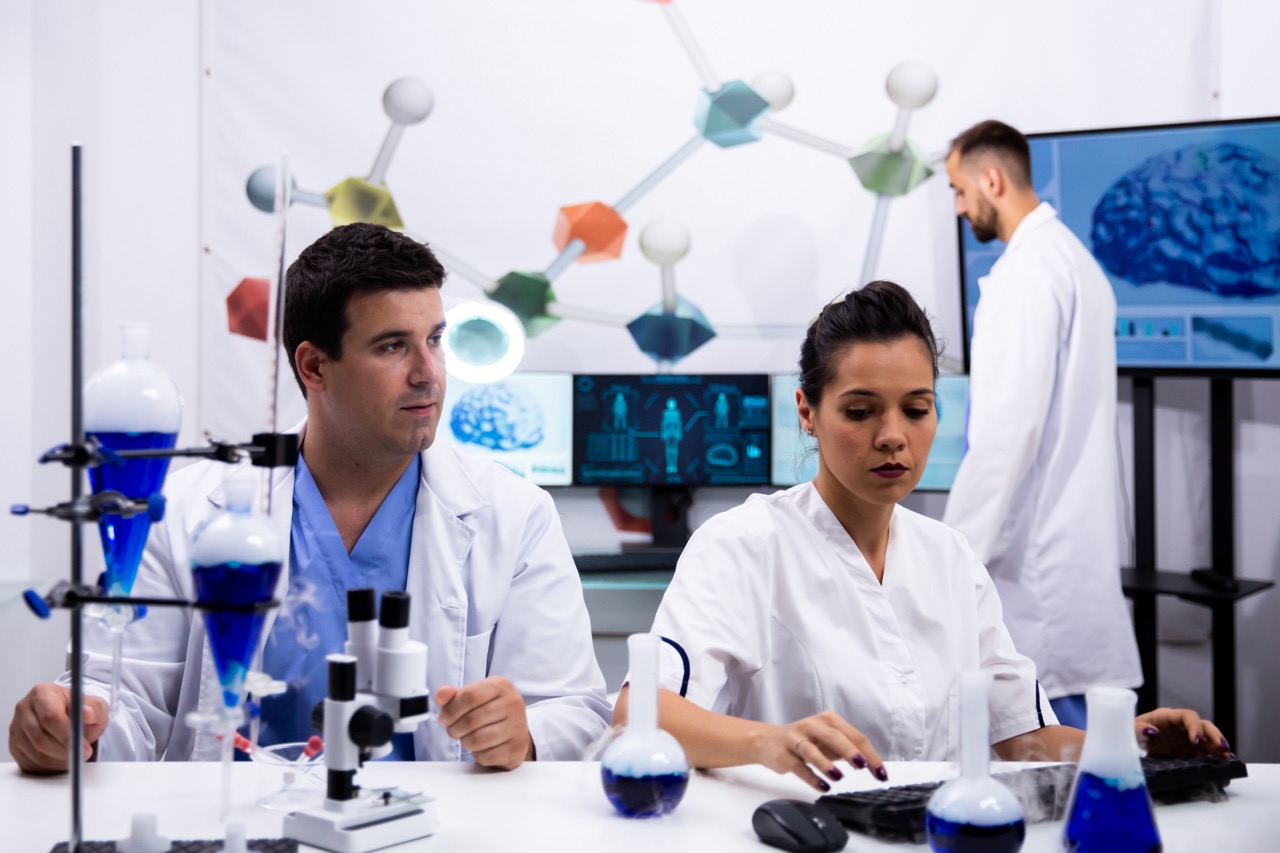Louis Pasteur, a French chemist and microbiologist, is celebrated for his pioneering work that laid the groundwork for the germ theory of disease. His meticulous research and innovative experiments reshaped our understanding of infectious diseases and revolutionized public health. By challenging the prevailing miasma theory, which attributed diseases to "bad air," Pasteur provided compelling evidence that microorganisms were the real culprits behind many illnesses. This article delves into the foundations of microbiology established by Pasteur’s early work, key experiments that challenged existing medical beliefs, the role his discoveries played in the development of germ theory, and the lasting impact of this paradigm shift on medicine and health.
The Foundations of Microbiology: Louis Pasteur’s Early Work
Louis Pasteur began his scientific journey with a focus on chemistry, particularly in the fields of fermentation and crystallography. His early work on the fermentation process demonstrated that yeast was responsible for converting sugar into alcohol, a finding that had significant implications for the brewing and winemaking industries. Pasteur’s investigations into microbial activity led him to explore the role of microorganisms in food spoilage, culminating in the development of the pasteurization process. This method effectively reduced spoilage while preserving the quality of food and beverages, marking a significant achievement in food safety.
In the 1850s and 1860s, Pasteur’s research expanded to the study of diseases affecting silkworms. He identified the causative agents of diseases like pébrine and produced practical solutions to combat these ailments, thereby protecting the silk industry from impending decline. His work with silkworms provided a framework for understanding the relationship between specific microorganisms and their associated diseases. This early exploration of the microbial world set the stage for his later investigations into human diseases, positioning him as a key figure in the nascent field of microbiology.
Pasteur’s attention to detail and rigorous approach to experimentation established him as a pioneer in the scientific community. His early contributions were foundational, laying the groundwork for future discoveries and prompting a shift in how scientists approached the study of infectious diseases. By demonstrating that microorganisms could affect both food and health, Pasteur shifted the focus of scientific inquiry toward understanding the role of microbes in disease causation, ultimately leading to the development of germ theory.
Key Experiments That Challenged Existing Medical Beliefs
One of Pasteur’s most significant challenges to existing medical beliefs involved his famous swan-neck flask experiment conducted in the 1860s. In this experiment, he sterilized nutrient broth and placed it in flasks with curved necks that allowed air to enter while preventing dust and microorganisms from contaminating the broth. The results showed that the broth remained clear and free from microbial life, while flasks that were left open to the air quickly became turbid with microbial growth. This experiment demonstrated that microorganisms were not spontaneously generated but were instead present in the environment, directly contradicting the long-held belief in spontaneous generation.
Pasteur’s investigations into the causes of diseases also included his work on rabies. In the late 1880s, he developed a vaccine using attenuated rabies virus, showcasing the potential of vaccination in disease prevention. His successful development of the rabies vaccine illustrated the connection between specific pathogens and specific diseases, reinforcing the idea that microorganisms were responsible for infections. This advancement not only provided a practical solution to a deadly disease but also served as a powerful advocacy for the importance of understanding the microbial basis of illness.
By challenging the miasma theory and presenting a new paradigm grounded in observable evidence, Pasteur significantly altered the trajectory of medical science. His experiments laid the foundation for the acceptance of germ theory, encouraging other scientists to explore the relationships between microbes and diseases. The implications of his work reached far beyond theoretical discussions, as they sparked a movement toward empirical research and evidence-based medicine, ultimately benefiting public health and patient care.
The Role of Pasteur’s Discoveries in Germ Theory Development
Louis Pasteur’s discoveries played a crucial role in the establishment of germ theory, which posits that specific diseases are caused by specific microorganisms. His meticulous research provided overwhelming evidence linking pathogens to infectious diseases, particularly through his work on anthrax and chicken cholera. By demonstrating that falling ill could be traced back to identifiable microorganisms, Pasteur helped shift the medical community’s perspective away from considering environmental factors alone as the root causes of disease. This transition laid the groundwork for a more scientific approach to understanding and treating illnesses.
The development of vaccination as a preventive measure was another cornerstone of Pasteur’s contributions to germ theory. His work on vaccines demonstrated that exposure to weakened or inactivated pathogens could elicit a protective immune response, a concept that would later form the basis of immunology. Pasteur’s principles of vaccination not only addressed specific diseases but also highlighted the importance of microbial research in the quest for improved public health outcomes. This connection between vaccination and germ theory significantly influenced public health policies and practices worldwide.
As Pasteur’s ideas gained traction, they paved the way for other influential figures, such as Robert Koch, to further explore the relationship between microbes and diseases. Koch’s postulates, which provided a systematic method for linking specific pathogens to specific diseases, were inspired by Pasteur’s work. Together, these contributions solidified germ theory as a cornerstone of modern medicine, fundamentally changing how diseases were understood, researched, and treated throughout the late 19th and early 20th centuries.
Lasting Impact: How Germ Theory Transformed Medicine and Health
The advent of germ theory had profound implications for medicine and health practices across the globe. The recognition that pathogens could cause disease shifted standards of hygiene and sanitation, prompting the implementation of measures such as handwashing and sterilization in medical settings. This shift contributed to a significant reduction in infection rates during surgeries and hospital stays, ultimately saving countless lives. The integration of antiseptic practices into surgical procedures, driven by Pasteur’s findings, marked a turning point in surgical safety and patient outcomes.
Germ theory also catalyzed advancements in public health initiatives. Governments began to prioritize sanitation, clean water access, and waste management to combat the spread of infectious diseases. Vaccination programs emerged as a key strategy in preventing diseases such as smallpox, diphtheria, and polio, which had once claimed millions of lives. The focus on disease prevention through vaccination and improved hygiene practices resulted in substantial declines in morbidity and mortality rates, showcasing the profound impact Pasteur’s work had on global health.
Furthermore, the principles derived from germ theory continue to inform contemporary medical research and practices, influencing fields such as microbiology, immunology, and epidemiology. Understanding the role of microorganisms in health and disease has led to the development of new vaccines, antibiotics, and treatment protocols. Pasteur’s legacy endures in the ongoing quest to combat infectious diseases, emphasizing the importance of rigorous scientific inquiry and evidence-based medicine in safeguarding public health.
Louis Pasteur’s groundbreaking work fundamentally transformed the understanding of infectious diseases, leading to the establishment of germ theory. His early investigations into fermentation, meticulous experiments challenging existing beliefs, and significant contributions to vaccination have had lasting impacts on medicine and public health. By highlighting the role of microorganisms in disease causation, Pasteur not only changed the trajectory of scientific inquiry but also improved health outcomes for millions worldwide. The principles derived from his research continue to shape the foundations of modern medicine, ensuring that his legacy remains relevant in the ongoing battle against infectious diseases.










